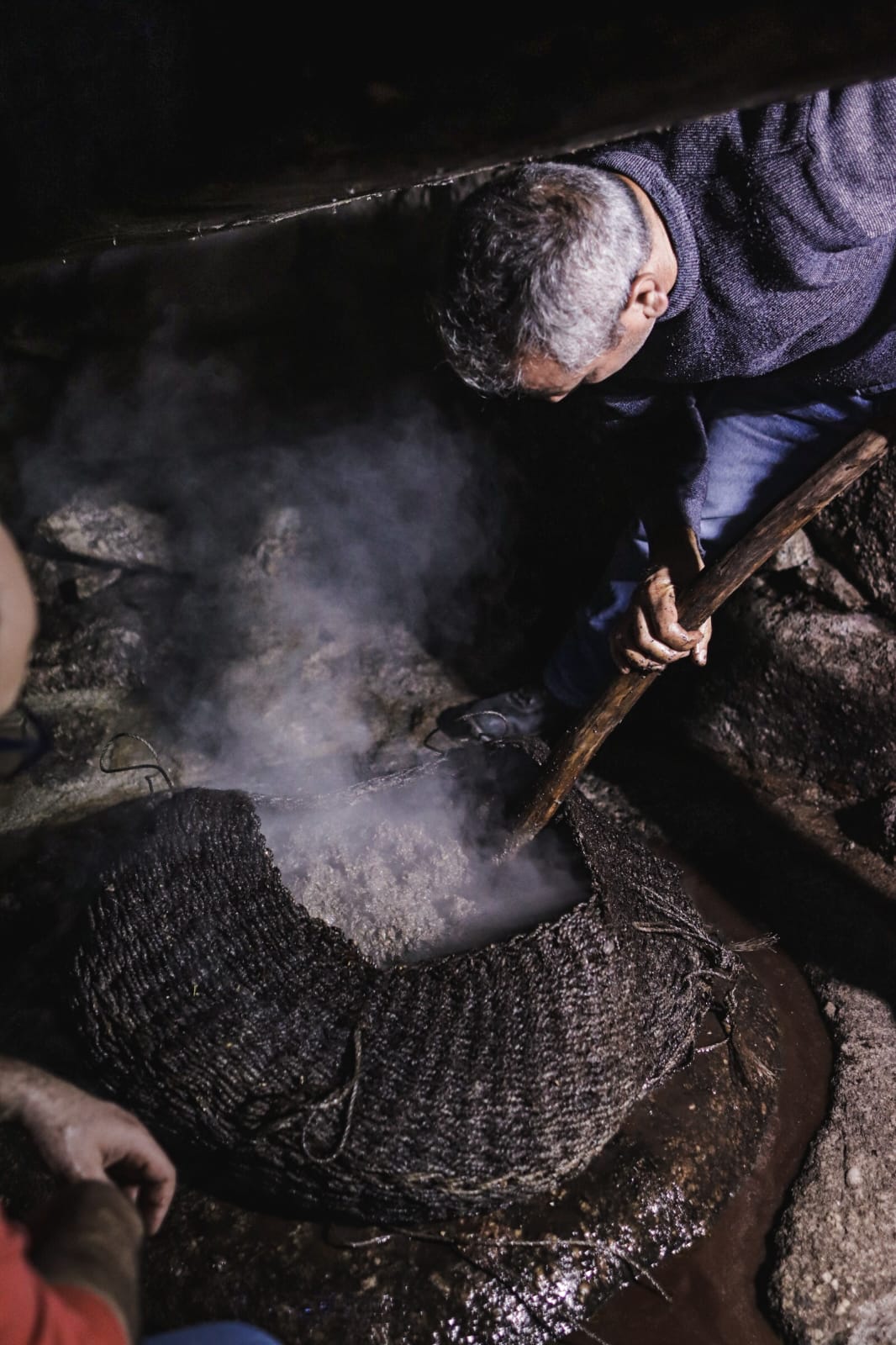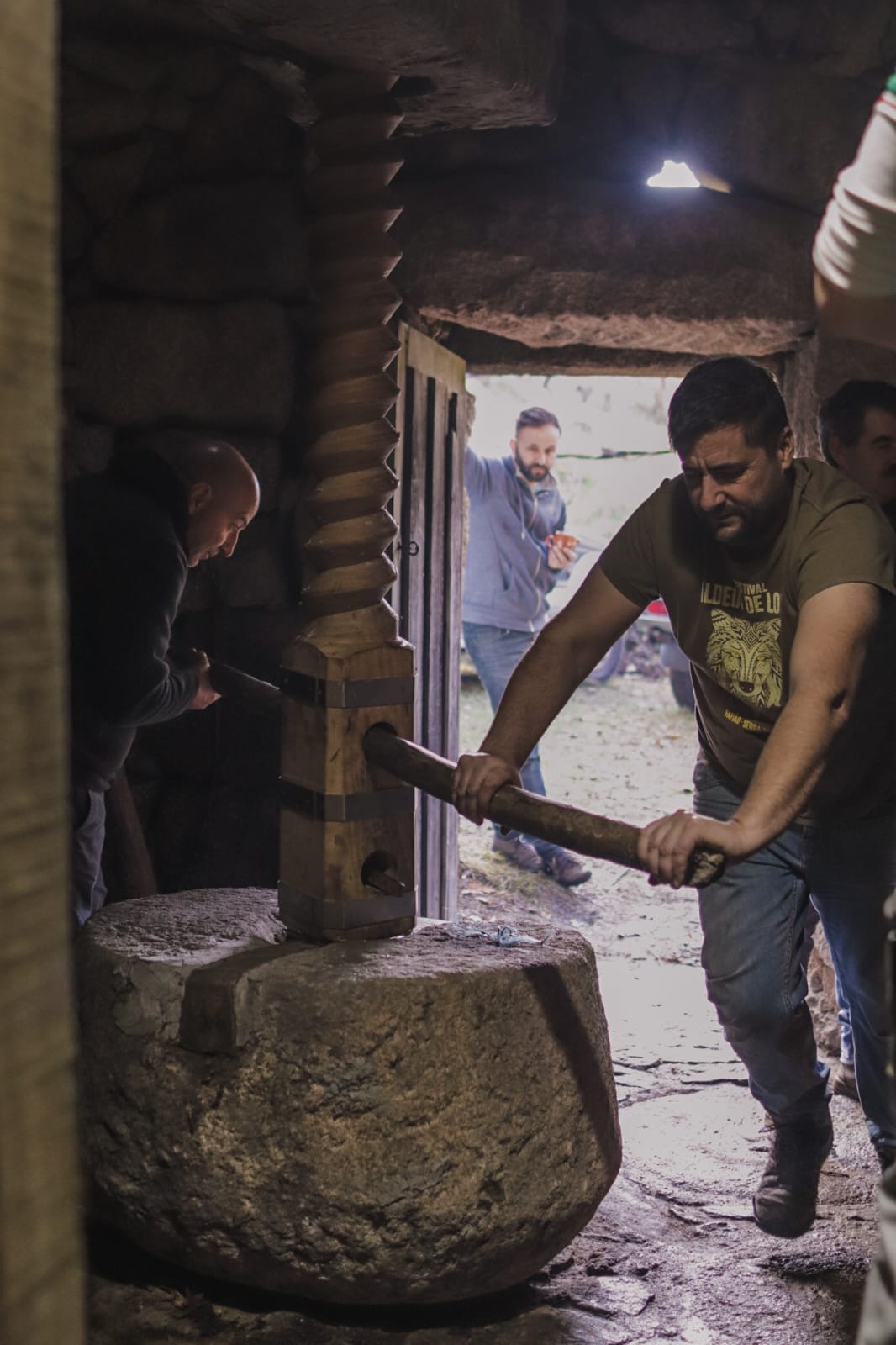Fafião is a place rich in tradition and natural beauty, nestled in the heart of Peneda-Gerês National Park. Last week, the villagers of Fafião have lovingly restored their communitarian lagar de azeite (olive press), and it is now operating once again, offering a glimpse into the region’s rich agricultural heritage. Powered by the pure waters of a nearby stream, this communitarian olive press is an important piece of local history that some of our visitors can experience during our tours.
The History of Fafião’s Communitarian Olive Press
For centuries, the people of Fafião have produced olive oil in their communitarian olive press. Every December, villagers would gather to pick olives and bring them to the lagar de azeite, situated next to a mountain stream. For weeks, the press would operate day and night, creating delicious artisanal olive oil. However, a few years ago, a key piece of the machinery broke, bringing an end to this long-standing tradition. Thanks to the recent restoration, the people of Fafião can now continue this cherished craft
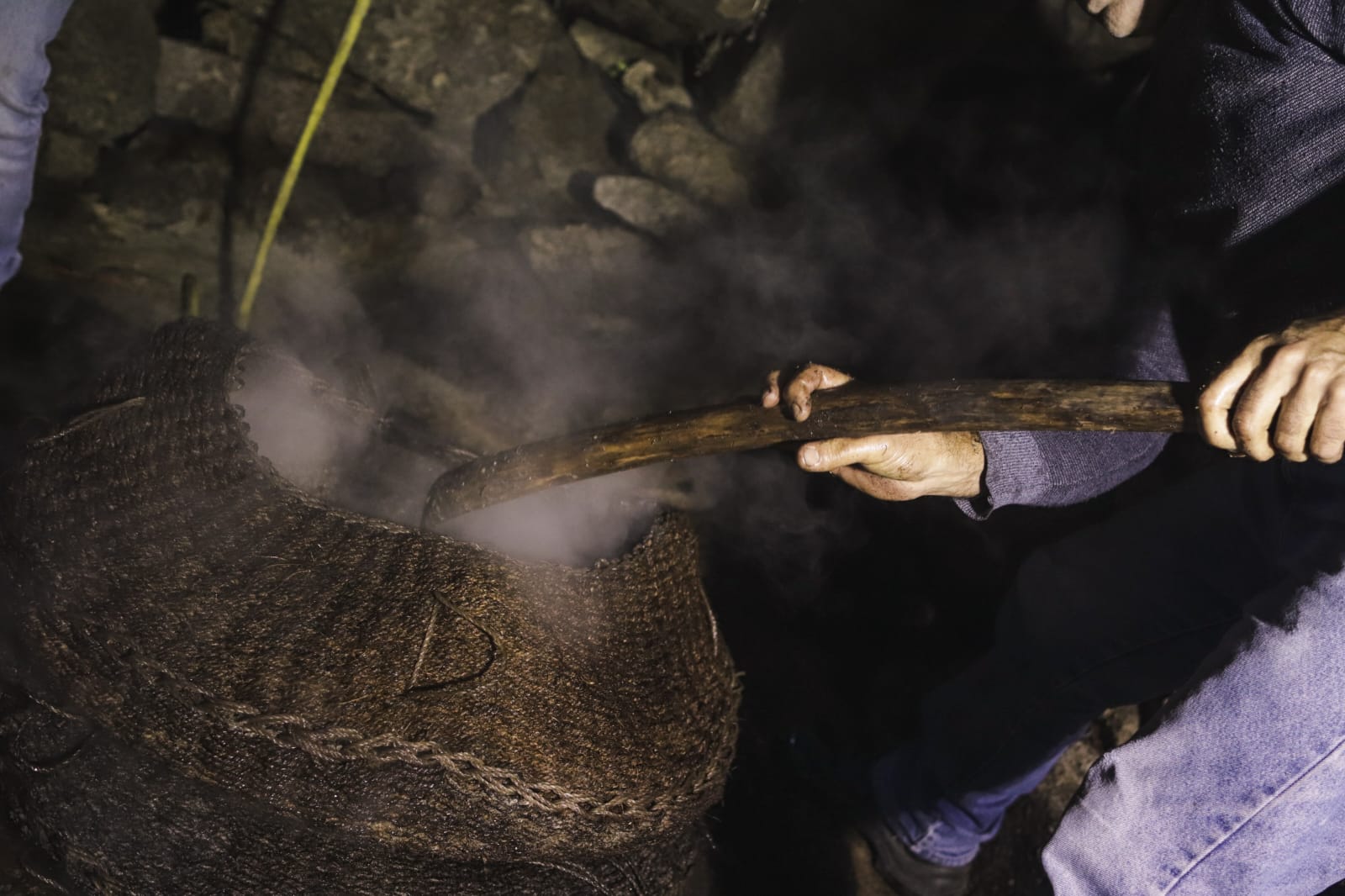
The olive press is powered by water from a mountain stream. By redirecting the stream, water flows through a waterwheel connected to a large stone that grinds the olives into a paste. This paste is then packed into woven baskets, which are stacked on top of each other. Hot water, heated in a kettle over a fire, is poured over the baskets to help extract the oil. While working, villagers often grill bacalhau (codfish) over the same fire, enjoying it with freshly pressed olive oil as a snack.
After the hot water is added, a large log with a screw mechanism, pushed by strong hands, presses down on the baskets. Since oil and water don’t mix, the olive oil naturally separates from the water, resulting in the pure, golden liquid that has been a staple of Fafião for generations.
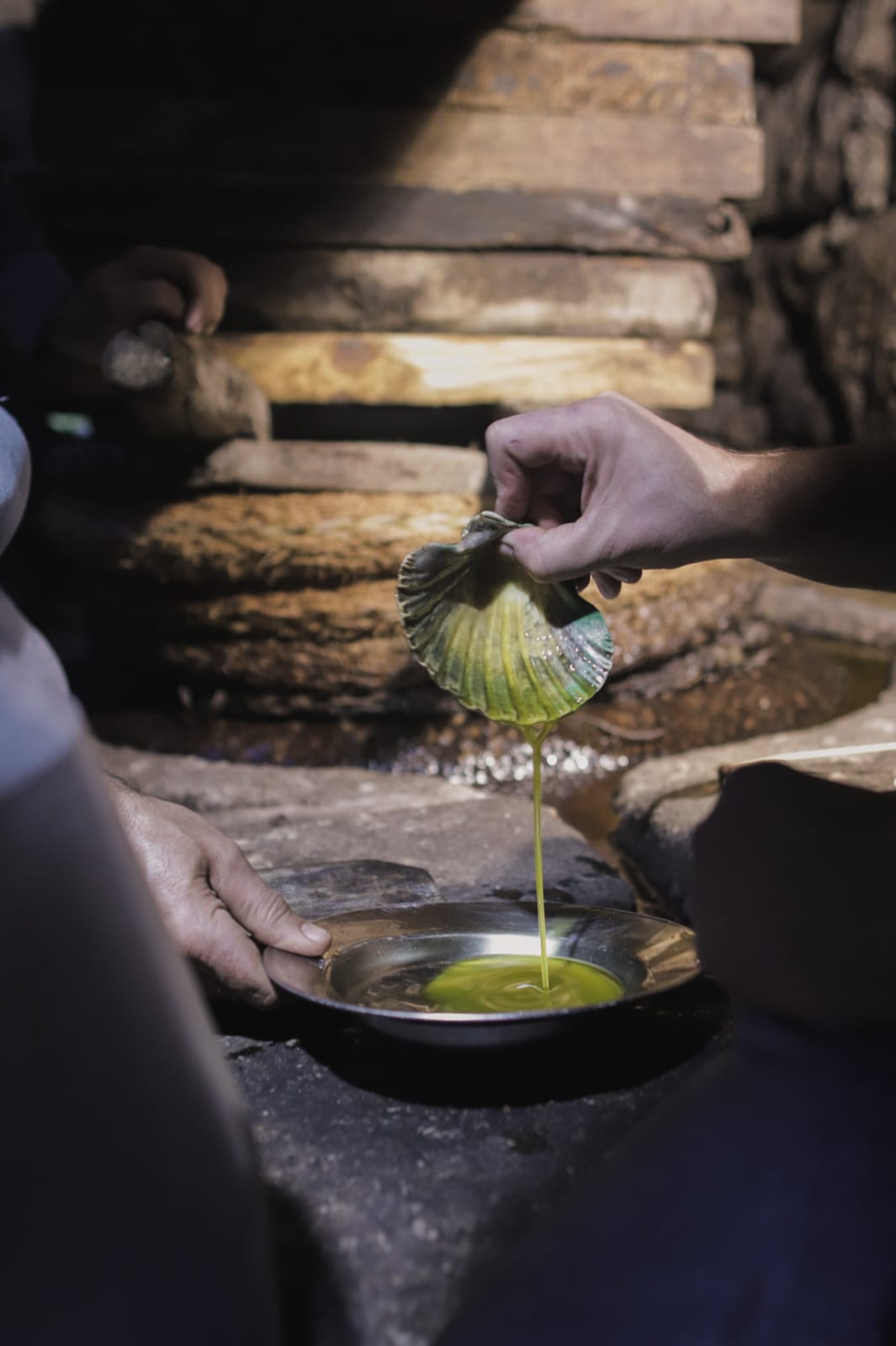
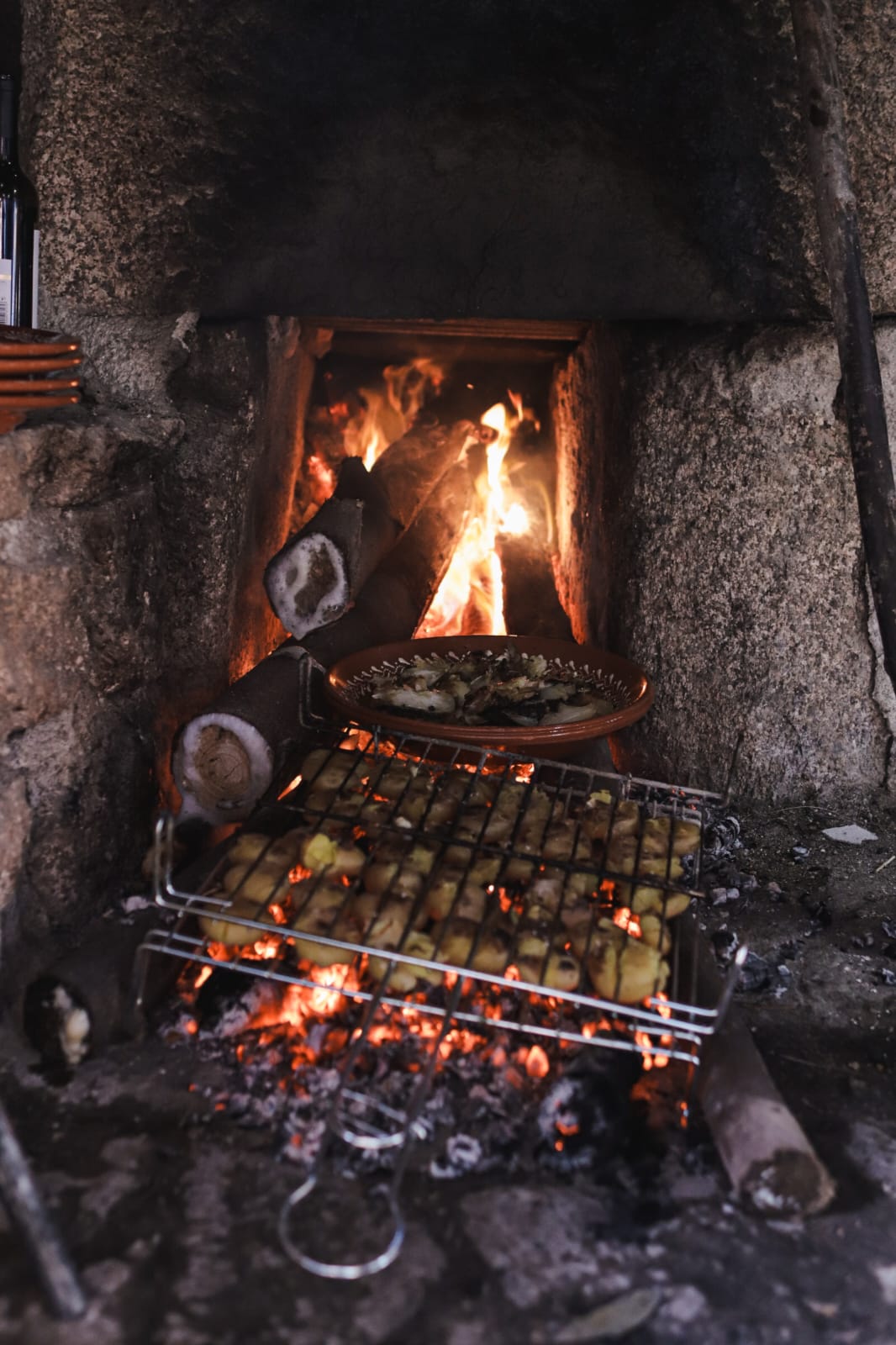


_large.jpeg)
